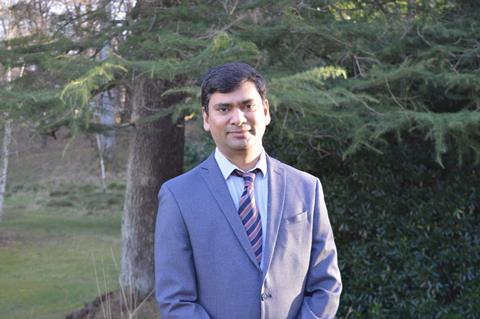The CarbonXtras project, funded by Innovate UK Business Connect, combines soil sensor technology with real-time monitoring to help farmers rebuild soil health, improve productivity and generate additional income through sustainable practices.

A new scheme aims to empower African farmers and enhance their ability to produce food sustainably in the face of climate change.
Researchers at The James Hutton Institute, working with technology partners and community groups from the UK, Ghana, and Brazil, are supporting smallholder farmers in Ghana to adopt climate-smart, regenerative farming methods.
These approaches aim to tackle poor soil health and the growing pressures of climate change, both of which pose risks to food security and rural livelihoods.
Known as CarbonXtras, the initiative has received £100,000 in funding from Innovate UK Business Connect. It provides a sustainable alternative to conventional methods by helping farmers rebuild soil health, improve crop productivity, and generate additional income through climate-friendly agricultural practices.
To achieve this, the project team is collaborating with Aberdeen-based Sonavision to develop and expand a cost-effective, easy-to-use retractable soil sensor. Data collected from this advanced tool will be integrated into a real-time monitoring, reporting and verification (MRV) platform created at the institute.
This system will allow for accurate predictions of soil carbon levels and overall soil health improvements when farmers apply regenerative practices such as crop rotation, cover cropping, and reduced tillage.
Robustness and efficacy
“Many farmers in Ghana struggle to maintain crop productivity due to soil degradation and unpredictable weather patterns,” explains Jagadeesh Yeluripati, senior scientist at the Hutton. “Some are resorting to gold mining on their farmlands as a last option, which further damages the soil and jeopardises long-term food production.”
He adds: “This MRV digital tool will be tested for its robustness and efficacy in four field trials covering different climate and soil conditions in Ghana, collecting data from farms using specially designed soil sensors and mobile applications, tracking soil health, greenhouse gas emissions and carbon storage. It provides farmers with tailored advice on improving their practices and adapting to climate risks.”
The verified data generated through the MRV system also has the potential to provide farmers with a new income stream that rewards them for sustainable farming, the group suggests.
The project builds on successful trials conducted in Scotland and data generated in Brazil, with technology adapted to local African conditions and languages.








